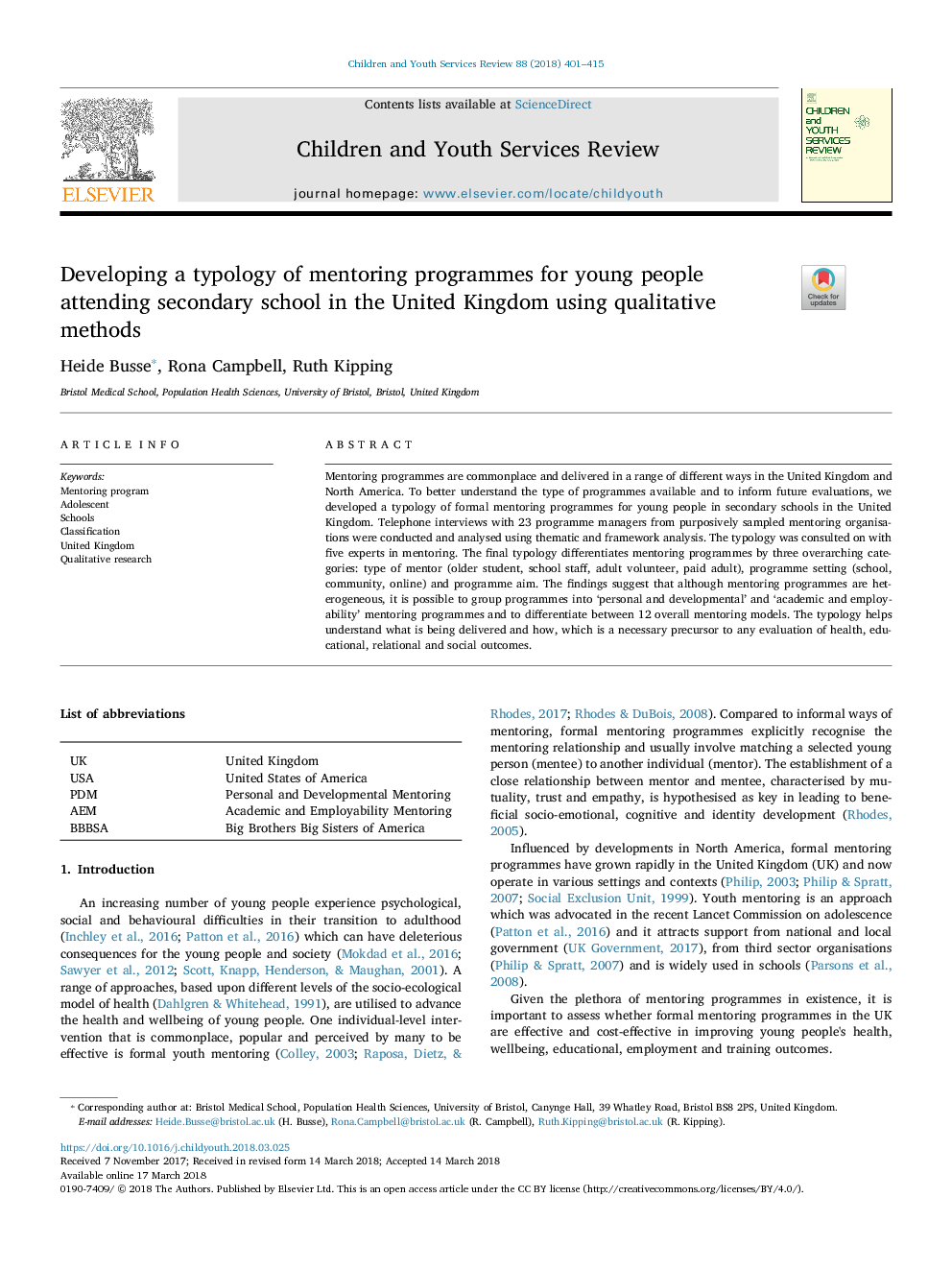ترجمه فارسی عنوان مقاله
ایجاد یک نوع شناختی از برنامه های مربیگری برای جوانان در مدارس متوسطه انگلستان با استفاده از روش های کیفی
عنوان انگلیسی
Developing a typology of mentoring programmes for young people attending secondary school in the United Kingdom using qualitative methods
| کد مقاله | سال انتشار | تعداد صفحات مقاله انگلیسی |
|---|---|---|
| 94530 | 2018 | 15 صفحه PDF |
منبع

Publisher : Elsevier - Science Direct (الزویر - ساینس دایرکت)
Journal : Children and Youth Services Review, Volume 88, May 2018, Pages 401-415
ترجمه کلمات کلیدی
برنامه مربیگری، نوجوانان مدارس، طبقه بندی، انگلستان، تحقیق کیفی،
کلمات کلیدی انگلیسی
Mentoring program; Adolescent; Schools; Classification; United Kingdom; Qualitative research;

